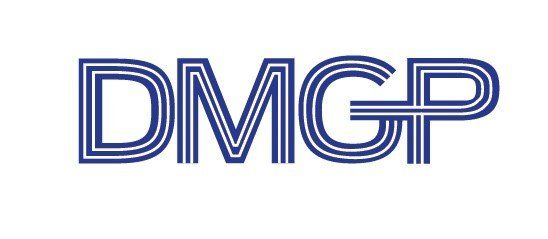Biblical Counseling in comparison to Inner Healing
What is Biblical Counseling?
When someone hears the word Biblical Counseling, most will think it is counseling done with the Bible. This assumption is partly true but partly false. To better understand what Biblical Counseling is, we must look into other types of counseling and reflect upon it to truly value and appreciate BiblicalCounseling.
The field of psychology is vast, and we will not look deep into all of it. However, we will observe and analyze common counseling methods used by Christian leaders and counselors compared to Biblical Counseling. Once you have a general understanding of current methods used by Christian leaders and counselors, you will discover why BiblicalCounseling is needed in the fourth industrial revolution and the benefits it can have once you incorporate it into discipleship training.
inner healing Ministry
Inner Healing Ministry or movement was a good intent grassroots effort among the Christian lay counselors among various Christian denominations. It primarily focuses on past wounds through self-revelation using prayers, forgiveness, repentance, rejecting lies, replacing them with truth, and processing painful memories.
Although it uses some Biblical tools in conjunction with counseling tools, it often emphasizes past wounds. The counselor helps the counselee remember the past pains and wounds by bringing up painful memories of the counselees. This method relies too much on the emotional aspect of self-revealing and focuses on healing the counselee's memories may not be accurate or true.
Inner Healing has its roots with Agnes Sanford during the 1940s. Sanford coined the term Inner Healing as what she experienced as the healing of memories. She began teaching her views at the School of Pastoral Care started by her husband in 1958, and Sanford has influenced manyInner Healing teachers and authors.
Much pastoral counseling practice is modeled after Inner Healing as it became popular among the middle class during the third industrial revolution period.
Inner Healing counselors begin their counseling session with the counselee's experienced phenomenon. Based on what the counselee discussed, the counselor looks for Scriptural support to validate the counseling session. If the Scripture does not assist with the counselee's inner Healing, the counselor uses other secular psychological tools and methods until inner Healing is finally experienced. It focuses only on healing the counselee's memory aspect rather than dealing with the counselee's original problem. The counselor uses all methods available, even hypnosis, to discover the counselee's subconscious memories, which may or may not be true.
Inner Healing ministry is encouraged among the lay counselors to use it as one of its tools that counselors can use. Unfortunately, it can and has led to dangerous "mob theology" where the powerful influences the usage of such a method rather than Biblical view. The church stays silent because the power shift has been transferred to the great majority. Lay counselors can and should counsel those who are in need. However, without proper training and equipping in Biblical theology and doctrine, they can do more damage than good to those who seek them.
Problems with Inner Healing stems from the humanistic practice based on humanistic principles to resolve past emotional issues superficially. Also, Inner Healing does not allow the counselee to take responsibility for their behavior and does not allow the counselee to integrate negative past as their past but segregate them without fully resolving them.
The Freudian view of consciousness is the foundation of Inner Healing, as Inner Healing basis past experiences determine current conscious actions. It deals with negative past events in isolation to make it not affect the present conscious state. This foundation dismisses the very idea of the present encounter with the Word of God can heal and restore the counselee at the conception with the Word of God. The err of Inner Healingstems from the counselee's behavioral observation to find a resolution, rather than focusing on Biblical Foundations.
Inner Healing brings forth what the counsel deemed to remember using various non-orthodox methods, even hypnosis, to identify the past emotional pains and scars then apply Scriptures to it. It is a human-centric approach to resolving spiritual and emotional problems, which dwells in the spiritual domain. Instead of guiding the counselee to the Scripture and allow Scripture to reveal itself to the counselee in resolving the past emotional pains and scars, it brings subconscious emotional pains and scars that may or may not be true to the surface, allowing the counselee to endure through another trauma.
Inner Healing is viewed as effective because once the counselee is exposed to the past emotional pains and scars, the obvious response of emotional tears and expelling is visible to both the counselee and the counselor. However, it does not necessarily mean the past emotional pains and scars have been resolved; rather, it is a poor response more encountering what the counselee perceives as the painful past event.
Inner Healing focuses on the past painful memories; once the emotional reaction to the encounter passes, the counselee and the counselor are fooled into thinking that the issue has been resolved. Unfortunately, it did not resolve the original issue the counselee sought a counselor after; it exacerbated the problem by bringing the past emotional pain and scars without an adequate remedy. Hence, the counselee is left to believe that the counselee is free from the past emotional pains and scars.
When the counselee experiences another episode, both the counselor and the counselor are perplexed. As they try to discover the root of the issue, they run into a wall as they believe the original problem has been resolved.
Biblical Counseling is different from InnerHealing, as Biblical Counseling does not excessively emphasize past wounds of the counselee. Instead, Biblical Counseling session deals with past emotional pains and scars by listening to the counselee but does not focus on it. Later we will discuss the foundation of Biblical Counseling, and it will create a framework for you to understand and apply Biblical Counseling in the discipleship training.












